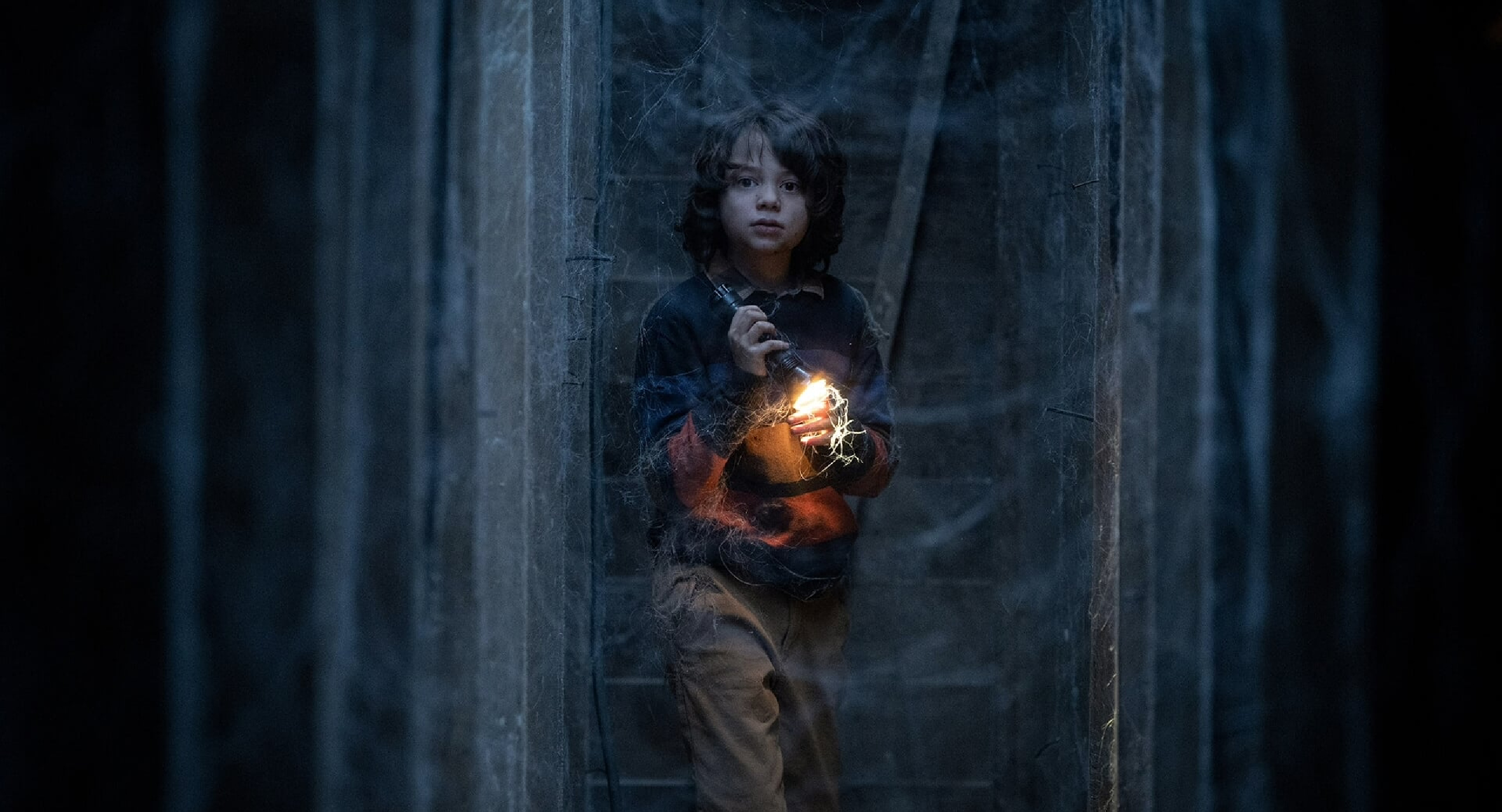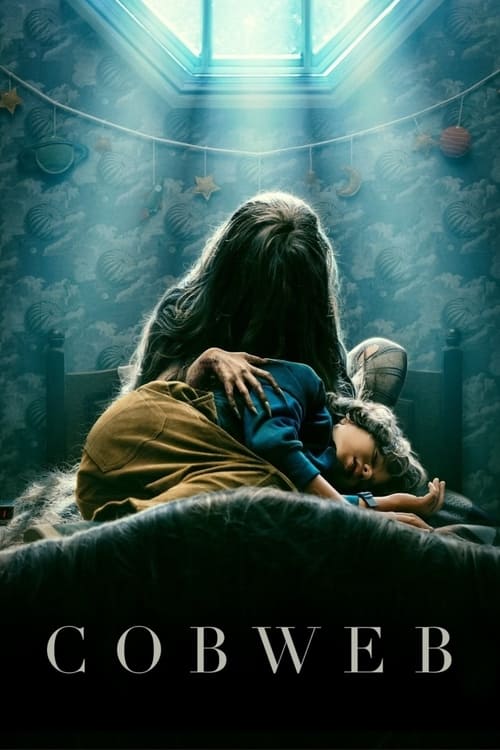Cobweb – Film Review
Published August 19, 2023

Young Peter is plagued by a mysterious, constant noise from inside his bedroom wall — a tapping that his parents insist is in his imagination. As his fear intensifies, he starts to believe that his parents are hiding a terrible and dangerous secret.
Directed by Samuel Bodin and written by Chris Thomas Devlin, Cobweb is a haunting exploration of isolation, manipulation, and the chilling depths of human psychology. With a carefully crafted narrative, stellar performances, and a sense of unease that lingers long after the credits roll, this film invites audiences into a world where reality and delusion blur, leaving us questioning the boundaries between innocence and malevolence.
The heart of the story revolves around Peter, portrayed with remarkable depth by Woody Norman, an eight-year-old boy ensnared within the claustrophobic confines of his family home. This emotional prison is cleverly depicted through both physical and psychological means, as Peter’s overbearing parents (Lizzy Caplan and Antony Starr) cast a shadow that stifles his growth. The opening scenes subtly introduce us to Peter’s world of bullying and loneliness, skillfully eliciting empathy from the audience.
The film takes an intriguing turn when Peter’s path crosses with the enigmatic substitute teacher, Miss Devine, played by Cleopatra Coleman. Devine serves as a key catalyst, her presence providing a glimmer of hope for Peter’s escape from his grim reality. The director’s choice to portray Miss Devine as a beacon of compassion is masterful, adding complexity to the narrative and emphasizing the contrast between her warmth and Peter’s cold home life.
The ominous backdrop of Halloween night serves as the perfect setting for the film’s unfolding mysteries. The shadow of a young girl’s disappearance years earlier casts an eerie pall over the festivities, and this serves as a catalyst for the intensifying events that follow. Bodin’s masterful direction creates an atmosphere of tension that’s palpable, while also allowing quieter moments of introspection to breathe, underscoring the film’s psychological depth.
Norman’s portrayal of Peter is nothing short of remarkable. His vulnerability and innocence evoke genuine empathy from the audience, drawing us into his struggles with isolation and self-doubt. As his interactions with the mysterious entity “Sarah” increase, Norman’s performance takes on a haunting intensity. The interplay between Norman and the unseen entity effectively blurs the lines between reality and illusion, forcing viewers to question what is genuine and what is a manifestation of Peter’s fractured psyche.
Cobweb‘s strength lies in its ability to manipulate perceptions, keeping viewers perpetually on edge. Sarah’s introduction as a malevolent presence lurking within the walls is both chilling and captivating. The film deftly builds tension through Peter’s conversations with Sarah, her whispered promises of understanding and revenge casting doubt on the intentions of those around him. The ambiguity surrounding Sarah’s true nature and intentions is a testament to Devlin’s intricate writing, providing layers of intrigue that unfold throughout the narrative.
The supporting cast, including Luke Busey as the antagonistic Brian and Cleopatra Coleman as Miss Devine, adds depth to the film’s narrative dynamics. Coleman’s portrayal of the concerned teacher is particularly noteworthy, as she navigates the blurred lines between Peter’s reality and delusion. The gradual escalation of Devine’s involvement adds an additional layer of complexity to the story, culminating in a riveting confrontation that leaves viewers on the edge of their seats.
As Cobweb reaches its climax, the psychological tension reaches its apex. The film masterfully toys with the audience’s perception of reality, culminating in a shocking and heart-wrenching turn of events. Norman’s performance shines as Peter’s vulnerability collides with the darkness that has enveloped him. The revelation of Sarah’s true intentions is a gut-punch that elevates the film’s psychological horror to new heights.
Bodin’s direction, combined with exceptional cinematography and sound design, amplifies the film’s unsettling atmosphere. The house itself becomes a character, its hidden passages and creaking floors serving as physical manifestations of the psychological turmoil that plagues Peter’s mind. The use of lighting and shadows adds to the film’s sense of foreboding, while the sound design intensifies the unease, with the tapping sounds and whispers becoming a chilling motif that echoes in the viewer’s mind.
Cobweb defies traditional genre conventions, seamlessly blending elements of psychological thriller, supernatural horror, and family drama. It’s a film that lingers long after the credits roll, leaving viewers haunted by its exploration of the darkness that can fester within the human psyche. The exceptional performances, nuanced writing, and masterful direction combine to create an experience that is both emotionally resonant and intellectually provocative. In the realm of modern psychological thrillers, Cobweb stands as a formidable and unforgettable entry that will leave audiences questioning the nature of reality and the depths of human fear.
